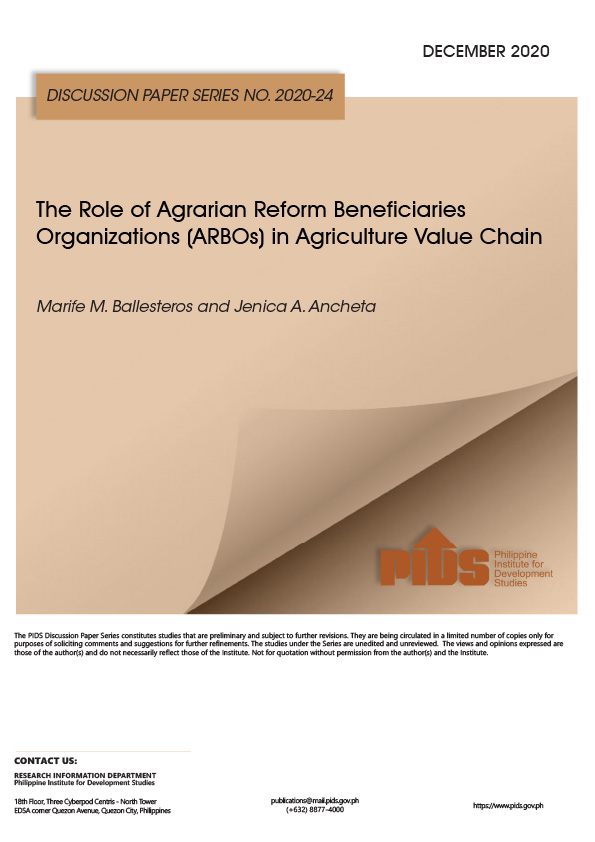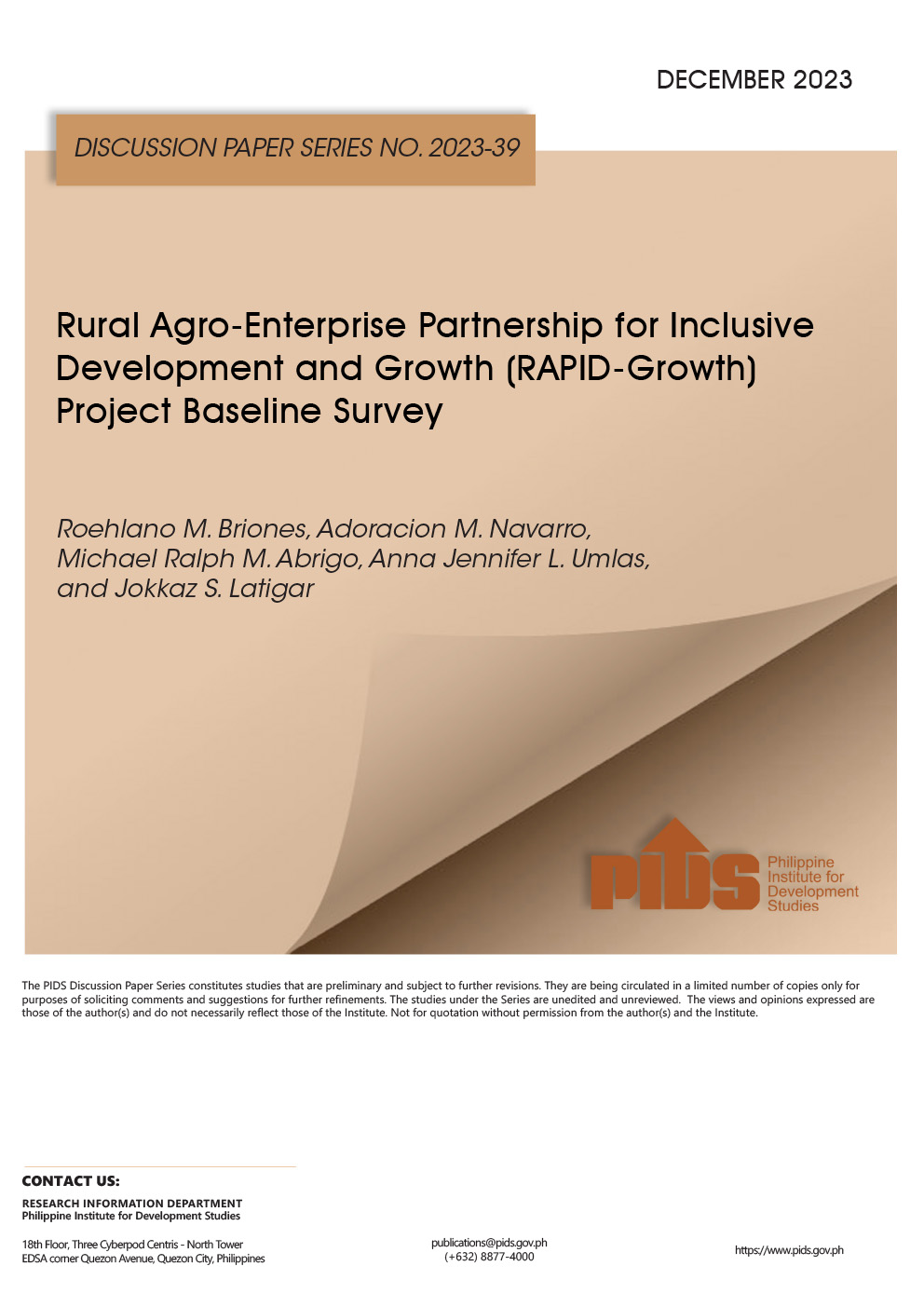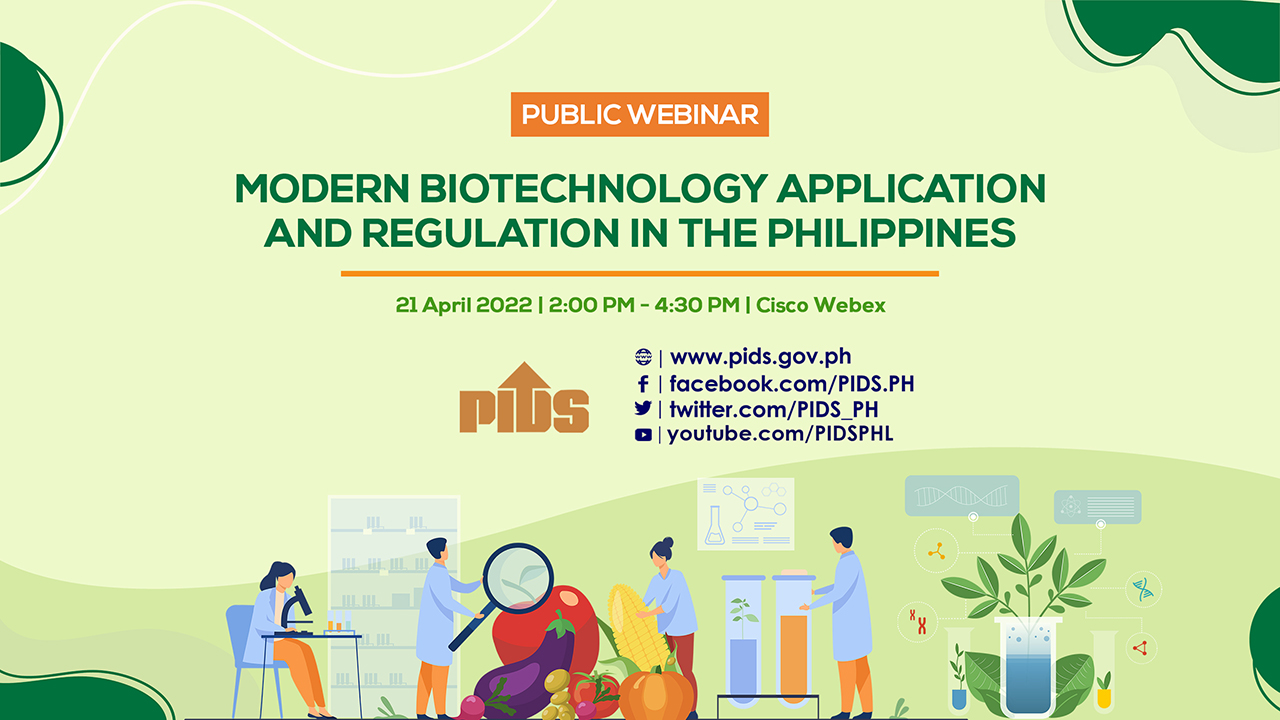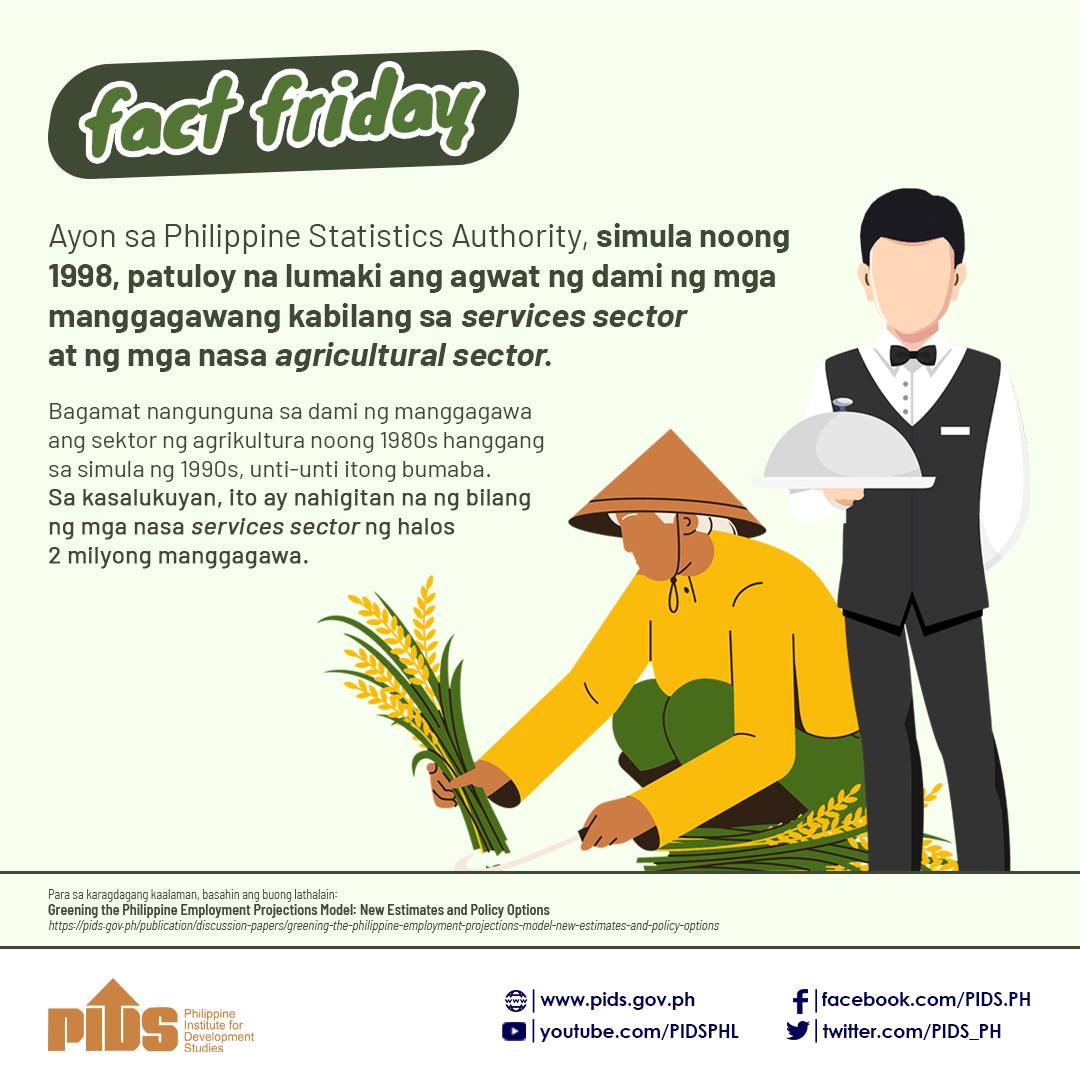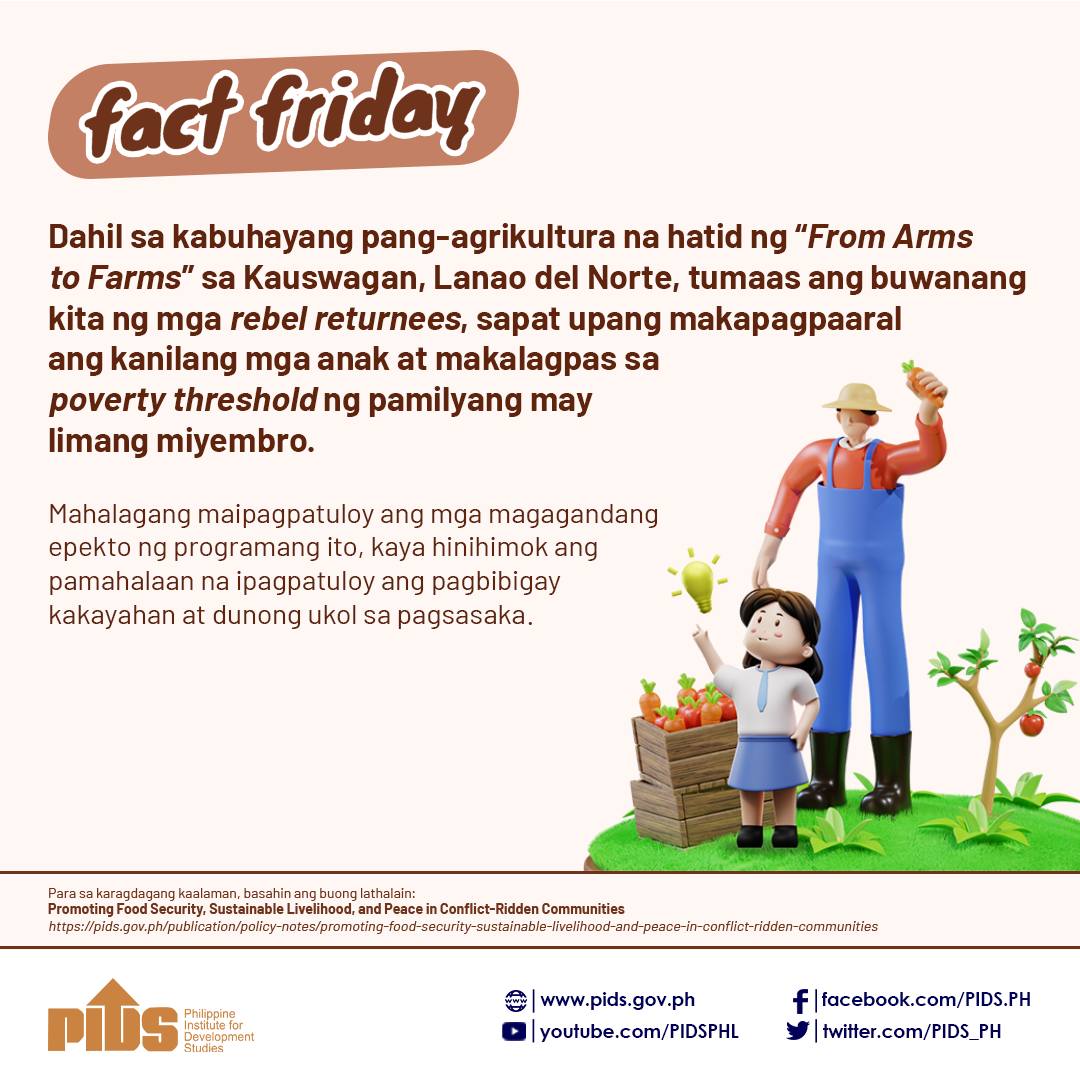This paper evaluates how agrarian reform beneficiary organizations (ARBOs) participate in the value chain; how they engage actors along the value chain; and what challenges do they face in the process. Farmer organizations, such as ARBOs, are important conduits for smallholders to participate, specifically in higher value chain. This strategy enables smallholders to pool resources, jointly carry out profitable activities, reduce risks and transaction costs, and operate on scale economies. However, many farmer organizations in the country have low level of organizational maturity and are mainly formed to access funding. Thus, smallholder participation in higher value chain is limited--the gains from value chain initiatives would impact only on a modest number of smallholders’ population and may not be sustainable in the long run. The paper suggests that farmer organizations and their participation in higher value chain can be improved by (1) enabling farmer members to commit to the organization through equity participation; (2) enabling farmer organizations to establish enterprises that will generate income for members; and (3) capacitating farmer organizations on building alliances/networking.
Comments to this paper are welcome within 60 days from date of posting.
Email publications@mail.pids.gov.ph.
Citations
This publication has been cited 4 times
- APIRAS Network . 2020. Many farmers’ coops turn inactive due to lack of managerial skills — study. Apiras Network.
- Ocampo, Karl. 2020. Many farmers’ coops turn inactive due to lack of managerial skills — study. Inquirer.
- Panay News . 2021. Empowering farmers. Panay News.
- PIDS/PIA . 2020. Farmer orgs help small-scale farmers participate in agri value chain - PIDS study. Philippine Information Agency.

